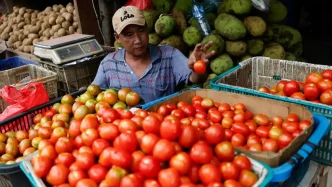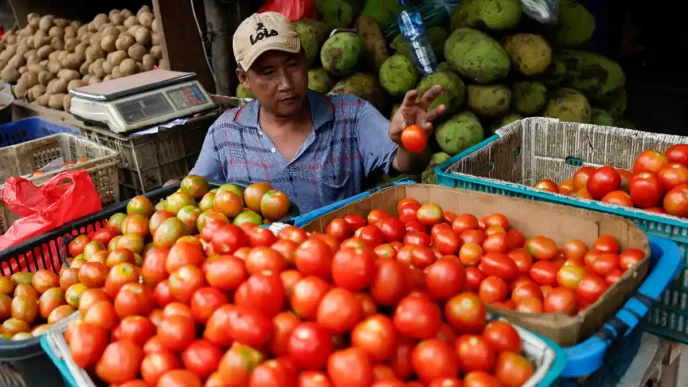In a significant shift for Singapore’s retail landscape, Malaysian retail group Macrovalue has agreed to acquire all Cold Storage and Giant supermarket outlets in the city-state from DFI Retail Group for an initial sum of $125 million. Announced on March 24, 2025, the deal encompasses 48 Cold Storage stores—including specialty brands like CS Fresh and Jason’s Deli—and 41 Giant outlets, alongside two distribution centers. Expected to finalize in the second half of 2025, this acquisition marks a strategic pivot for both companies as they navigate a fiercely competitive market amid rising food costs and inflation.
A Strategic Expansion for Macrovalue
Macrovalue, a relatively young player founded in 2022 by entrepreneurs Datuk Lim and Datuk Gary Yap, already controls Cold Storage and Giant operations in Malaysia following its 2023 acquisition of GCH Retail Group. By integrating Singapore’s operations, the group aims to streamline its regional presence. Co-owner Andrew Lim highlighted the potential for enhanced efficiency, stating, “We will ensure the continuity of local management and operational teams to continuously improve the quality of service for customers.” He also emphasized the benefits of leveraging Malaysia’s existing supply chain to bolster Singapore’s operations, promising better range and value for consumers.
The company has pledged a “seamless” transition, retaining key leadership such as Lim Boon Cheong, the current managing director of DFI’s Food Singapore unit. With over 30 years of experience at Cold Storage, Lim’s continued role as managing director signals stability for employees and customers alike during this handover. Macrovalue’s focus on operational synergy suggests an ambition to challenge Singapore’s dominant supermarket chain, FairPrice, which operates 164 stores under various formats and remains the market leader under the National Trades Union Congress cooperative.
DFI’s Pivot to Pharmacies and Convenience Stores
For DFI Retail Group, the divestment of its supermarket businesses in Singapore reflects a broader strategic realignment. The company, listed on the Singapore Exchange, saw its share price rise by 5.3 percent to US$2.34 on March 24 following the announcement, signaling investor confidence in its refocused direction. DFI plans to channel resources into its Guardian pharmacies and 7-Eleven convenience stores, which number over 120 and 450 outlets respectively in Singapore alone. The group also operates in markets like Thailand, Hong Kong, and the Philippines, where similar retail segments may see increased investment.
DFI’s chief executive officer, Scott Price, underscored the rationale behind the sale, noting the need to “leverage scale and operational efficiencies to protect customers from price volatility while maintaining quality and service standards.” This comes after DFI’s supermarket operations returned to profitability in 2024, following years of losses. Despite this turnaround, the company acknowledged earlier in March 2025 that supermarket revenue in Singapore is likely to remain flat due to intense competition, with better growth prospects anticipated from its convenience store segment.
Shifting Dynamics in Singapore’s Supermarket Sector
Singapore’s retail food sector is a battleground of established players and evolving consumer expectations. The closure of 11 Giant outlets in 2024, juxtaposed with the opening of five new stores under DFI’s supermarket brands—such as CS Fresh in Chancery Court and Giant in Tengah Plantation Plaza—illustrates the ongoing recalibration within the industry. Upgrades to existing stores, including Giant at IMM in Jurong East and Cold Storage in Tampines 1, reflect efforts to modernize and remain competitive, even as some locations, like Cold Storage at Leisure Park Kallang, shuttered as recently as March 10, 2025.
Beyond DFI and Macrovalue, competitors like Sheng Siong Group, with 77 stores including a new outlet in Punggol, continue to expand their footprint. FairPrice Group, meanwhile, dominates with a sprawling network that extends beyond supermarkets to convenience stores and pharmacies, totaling around 400 outlets. This competitive pressure, compounded by external factors such as inflation and supply chain disruptions, has pushed retailers to rethink their strategies. DFI’s exit from the supermarket space in Singapore may signal a broader trend of consolidation, where only players with significant scale or niche differentiation can thrive.
Implications for Consumers and Employees
For Singaporean shoppers, Macrovalue’s entry raises questions about pricing, product availability, and store experiences. While the group has promised to improve value through optimized procurement, it remains to be seen whether these efficiencies will translate into lower prices at a time when food inflation continues to bite. The retention of local management offers reassurance, but any major restructuring could still impact customer loyalty, particularly for brands like Cold Storage, which have long been synonymous with premium grocery shopping in Singapore.
Employees of Cold Storage and Giant outlets, numbering in the thousands across the 89 stores, face a period of uncertainty despite Macrovalue’s commitment to continuity. Industry observers note that acquisitions of this scale often lead to streamlining efforts, which could affect jobs or working conditions if cost-cutting measures are prioritized over expansion. While no immediate layoffs have been announced, the transition period through late 2025 will be critical in determining how Macrovalue balances profitability with its pledge to maintain service quality.
Regional Ripple Effects
The acquisition also holds broader implications for Southeast Asia’s retail sector. Macrovalue’s growing control over Cold Storage and Giant in both Malaysia and Singapore positions it as a formidable regional player, potentially influencing supply chains and pricing strategies across borders. This consolidation could prompt other multinational retailers to reassess their presence in the region, particularly in markets where local competition is intensifying. For DFI, the shift to Guardian and 7-Eleven aligns with a global trend favoring convenience and health-focused retail, sectors that have shown resilience even in economic downturns.
Analysts suggest that if Macrovalue successfully integrates its Singapore operations, it may look to other markets for expansion, capitalizing on the region’s growing middle class and urbanization trends. However, challenges such as regulatory hurdles, cultural differences in consumer behavior, and geopolitical tensions could complicate such ambitions. For now, the focus remains on ensuring a smooth transition in Singapore, a market known for its high standards and discerning customers.
Looking Ahead
As the deal progresses toward completion in the latter half of 2025, both Macrovalue and DFI face pivotal moments in their respective trajectories. For Macrovalue, the acquisition is a test of its ability to scale operations while preserving the trust of Singaporean consumers. For DFI, the divestment offers an opportunity to double down on segments with stronger growth potential, potentially reshaping its regional footprint. Amid these corporate maneuvers, Singapore’s retail sector continues to evolve, reflecting broader economic pressures and changing consumer habits. How these shifts will ultimately impact shoppers and workers remains an open question, one that will unfold in the months ahead.














